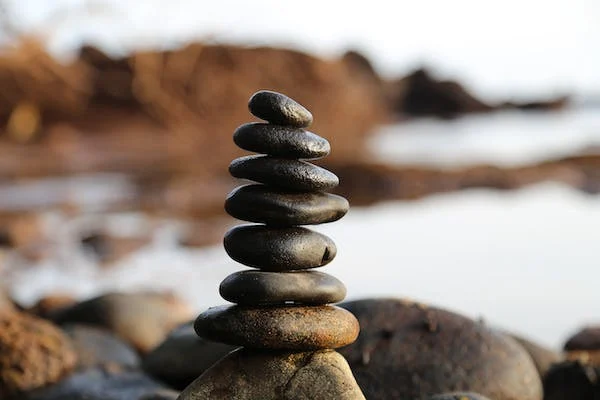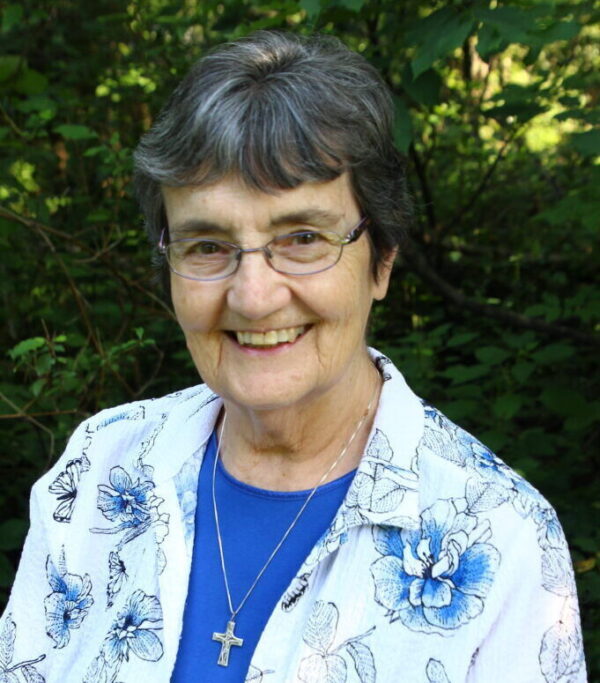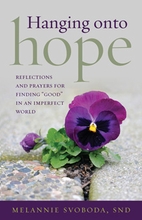In his speech at the Dallas Memorial Service a few weeks ago, former president George W. Bush said this: “Too often we judge other groups by their worst examples while judging ourselves by our best intentions.” I thought his words were very insightful.
While I was still pondering them, a friend gave

me a short article by Fr. Ronald Rolheiser, OMI, entitled “Our Churches Need Both Conservatives and Liberals.” Later I found another article by Rolheiser on line about this same topic. I was interested in these articles because I, like some of you, struggle with the tension between conservatives and liberals wherever I encounter it—but especially in politics and in the church. With that in mind, I’d like to share this brief summary of Rolheiser’s words with you.
Rolheiser says, “Liberals and conservatives should be judged by what’s best in them, not by their worst expressions.” He then describes both conservatives and liberals at their worst and then at their best.
He says that, in Church circles, conservatives at their worst are “mean-spirited, narrow, and grandiose.” They view every liberalizing tendency as “dangerous, godless, (and) an enemy.” Conservatives at their worst “live a lot by fear, and their primary instinct is to protect, circle the wagons, reduce ambiguity.” At their worst conservatives “move more naturally to exclusion than inclusion.” They tend to be “overly serious” because they are “the sole guardians of God and truth.” They see a whole generation of Christians who have never been catechized and who lack a Christian identity. That is why they “insist on proper boundaries, rules, and regulations.”

Liberals at their worst are “naïve and arrogant.” They see “Secular enlightenment…as the exclusive agent in having brought about the liberation of human freedom from superstition and false authority.” They also see secular enlightenment “as the sole agent in the struggle against racism, sexism, and other forms of inequality and injustice.” At their worst, liberals fail to see that’s what best inside their morality “comes out of Judeo-Christian roots.” If such liberals do not like you, “they will try to intimidate and shame you intellectually.” Liberals insist that what is needed is change—not more catechesis and rules, but renewed emphasis on love and personal responsibility.”
That’s conservatives and liberals at their worst. What are they at their best?
At their best, conservatives keep us mindful of some important truths:
+ energy isn’t always friendly; change isn’t always for the better
+ “Taboos exist for a reason”; there is such a thing as a “slippery slope”
+ some things need to be protected—like our countries, neighborhoods, marriages, families. “It’s naïve to think that what’s precious doesn’t need to be protected.”
+ there are some absolutes we cannot ignore without seriously hurting ourselves and the world
+ human beings often lack the inner strength to live the Gospel of love without some rules

Liberals at their best, keep us mindful of these important truths:
+ freedom is a divine gift; “God wants us to be free, and free from fear.”
+ there are as many dangers in being too safe as there are in taking risks. As Goethe pointed out: the dangers in life are many and safety is one of those dangers.
+ the golden age of the church was not as golden for non-whites and women
+ liberals challenge us to true “catholicity,” to an ever-wider embrace; “the truth revealed by Jesus (is) that God’s heart is not a ghetto but a house with many rooms.”
Rolheiser says, “most liberals and conservatives fight each other when in fact we badly need each other. Both carry important truths, and our culture and our churches would be far healthier if both would accept that.”
I don’t know to what extent you agree or disagree with Rolheiser’s appraisal. But it might be fruitful to reflect on these questions:
When it comes to the Church, do you consider yourself a liberal or a conservative—or somewhere in between?
If you are a conservative, what is your attitude toward liberals? If you are a liberal, what is your attitude toward conservatives?
No matter what your stance is, where are you being called to conversion?
In this talk about conservatives and liberals we must remember that the bottom line is not being right. The bottom line is love. Here is the song “Love Never Fails” by David Haas. It is based on St. Paul’s beautiful words on love from 1 Corinthians 13.
Do you have any thoughts on conservatives and liberals that you would like to share with us?
PS: Last week I spent a few days a the Chautaugua Institute in New York, a gift from some friends and the Catholic Community there. In future blogs I will be drawing from some of the talks I attended there. Also last Saturday I facilitated a retreat day for the women from St. Lad’s Parish in Westlake, OH. The setting (The River’s Edge in Rocky River, OH) provided a beautiful background for our prayer, reflection, and sharing. A big thank you to Pam for organizing the event and to everyone who came!







16 Responses
Good Morning, Sister Melannie,
What an intriguing topic! You are right: despite our leanings, we need to grow in love — for the Lord and for each other. I guess I would label myself a left-leaning Catholic. If women, for example, were ordained tomorrow, I wouldn’t bat an eye. If suddenly all the men who left the priesthood to marry were called back to help out by presiding over Sunday Mass, I would be fine, and as a parent of a gay child, well, I’m sure you know where I stand on that issue. My concern with my more conservative brothers and sisters is, as mentioned in your blog, their circle-the-wagons mentality. I’m sure because of my stance on certain social issues, I would be called a “cafeteria catholic.” So be it. In a way, Pope Francis embodies this liberal/conservative tension. Traditionalists cringe at his lack of clarity; liberals cringe with some of his pronouncements regarding the LGBTQ community. But as Paul writes and David Hass sings, “Love is patient, love is kind.” We all need to be the publican: “Have mercy on me, Lord, a sinner.”
Dear John,
What a balanced, gentle, sane response to this topic. Thank you so much for sharing your words with us. I liked especially how you related this to Pope Francis. Yes, his statements sometimes ruffles the feathers of “both sides.” Thanks again, John! Melannie
Thanks,Melanie
Good reminder for me about the bottom line
This is especially true for our coming
elections
Dear Mary James,
We all need reminding about the bottom line… Thanks for your response! Melannie
Happy Monday, Dear Sister Melanie,
Rather than echo my thoughts and feelings, I will say John Hopkins must have been reading my mind!! Not only do I agree with all of his statements, I also share some of the things in my life, and try to be open to others and their lives. If we all would try to dwell on how we are alike, rather than our differences, life would be so much easier.
Humility is good for the soul, and try to have an extra serving each day!
Blessings to you always, and thank you for being YOU…
Dear Rosemary,
Yes, John’s words resonated with me too. I liked your words too–especially your reminder that “humility is good for the soul.” Thank you for writing! Sr. Melannie
I have always been blessed(?) to see both sides of a story. Both “sides” have valid points and probably agree with each other on some issues. The problem, as I see it, are “rabid” individuals who are blind to others’ ideas and won’t even consider the possibility they may have valid points. Yes, we need both, but we also need to be able to compromise for the good of the whole, be it Church or politics.
Dear Jean,
As a wise person said: each of us carries a bit of truth in our souls. If only we would take the time to really listen to what others who are different from us are really saying. If we did, we’d get closer to the “Whole Truth.” Thanks for your words! Sr. Melannie
How brave you are to tackle a topic like this in the midst of this very contentious election year! It saddens me that our society seems to just want to apply a “label” to everyone, and use that “label” to categorize a person, instead of considering that person’s actual positions. No one is ALL conservative or ALL liberal, just as none of us are ALL right or ALL wrong. We’re all a mixture, and I think friendly, respectful dialog helps us not only to understand others but also to reflect on – and maybe reconsider – our own positions. I see a direct tie between the lack of “constructive outlets” to air our views and terrorism, mass shootings, police attacks and the relentless negativity and name-calling of the political process. And I am well aware that it starts at home because I am living with it in my own family. If I am unable to fix it there, what hope do we have for our larger family?
Dear Karen,
I must confess: I was a little hesitant to write about this topic, but I got over my hesitancy and wrote about it because I think it’s so important. I appreciated your words about “constructive outlets.” And also your honesty in saying all of this starts at home. Amen to that! Thank you, Karen, for your words! Sr. Melannie
Agree wholeheartedly, we need each other, now more than ever!
I suppose, to answer your initial question, I consider myself a FORMER liberal and am now a moderate conservative. But even that doesn’t describe me completely.
What I have tried doing in order to work together, is to try to compromise on certain things. I find that those who are most extreme are not even open to the idea of changing or compromising. Not even willing to listen. To those, I don’t bother engaging with after several attempts. I know when it’s going nowhere and feel it’s time to move on.
I do engage with those who are more open and more “in the middle” on a certain issue. And I have had some success in getting others to see things from my perspective/a different perspective. (Usually from the Christian perspective, I have a lot of atheist friends) Does it change their mind completely? No, but, just like evangelization, we can plant seeds.
I like to ask probing questions “Why do you feel that way?” “What makes you think that?” “Where did you read that information?” Because what you’ll find, is that if we ask questions and do a lot more listening, than talking, we can find common ground.
As I saw in a conversation online a couple months ago between Newt Gingrich and Van Jones, two people of opposite viewpoints can have a fruitful dialogue. Van Jones concluded by saying something along the lines of: “You know those family and friends of yours who see the world differently than you do? Nurture THOSE relationships. Fix THOSE relationships, especially come November when we’ll need each other to be unified more than ever.”
Dear Michelle, Thank you for sharing your wisdom with us. These words especially touched me: “if we ask questions and do a lot more listening than talking, we can find common ground.” Thanks again! Sr. Melannie
Sad to say, when push comes to shove, the “bottom line” is all that seems to matter. And then we are reminded that it was all that “love stuff”in the catechisms of a prior generation that confused us about what was right
and wrong!
I guess that is why we have this Year of Mercy, because only a Merciful Savior can help us attach some more human meanings to Right and Love so that they, and all of us who hitch our ecclesiastical or political wagons to one or other of them, won’t seem to be so diametrically opposed.
Dear Tom, Thank you for attaching all of this to the Year of Mercy. That focus seems wiser than ever before… Always good to hear from you! Melannie
I think that liberal and conservative are inadequate words to describe the divisions in the Church. Merton talked about the need for new language to talk about the reality.Merton also in Seeds of Destruction talked about the needs for silence until the message is clear